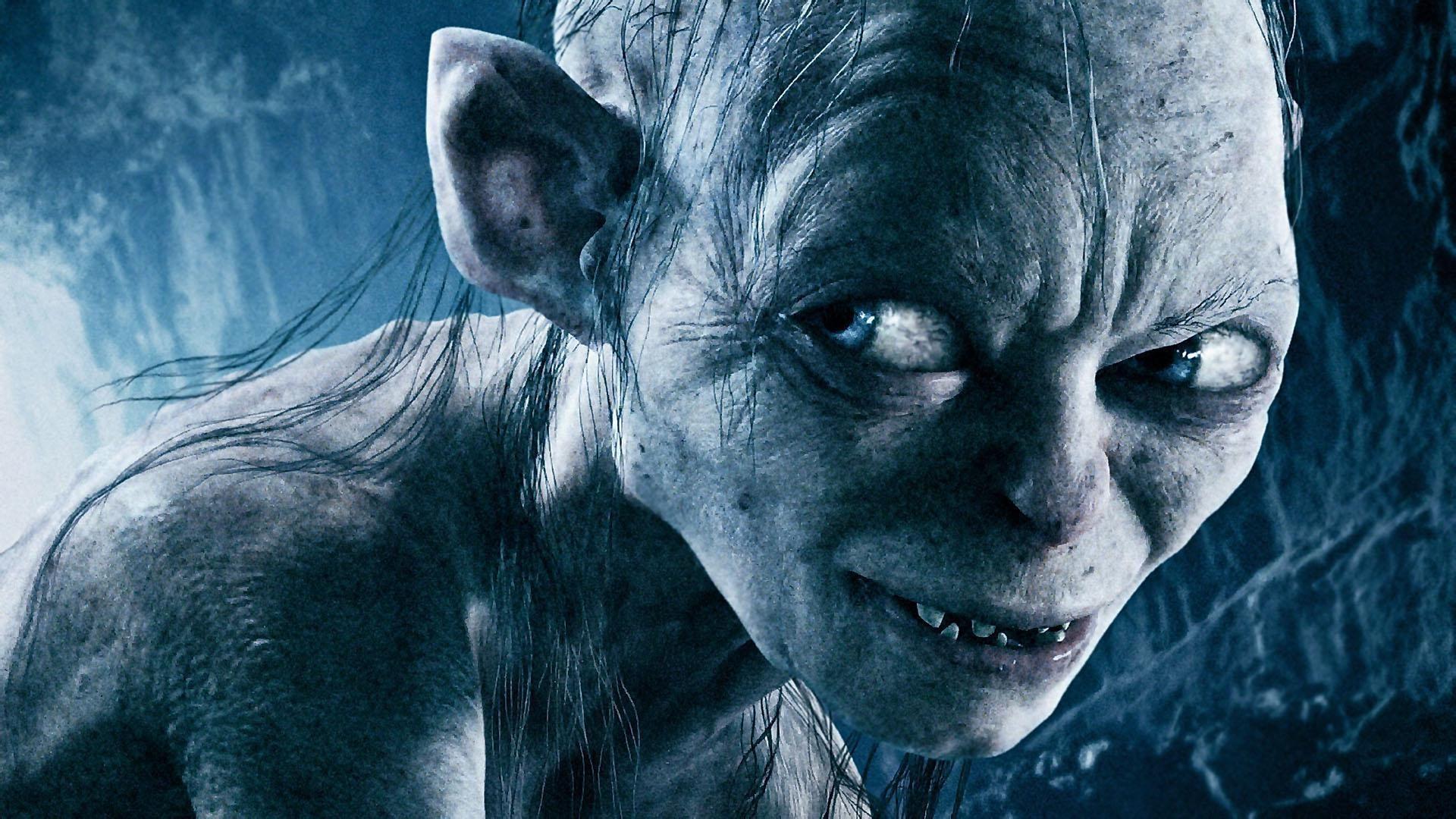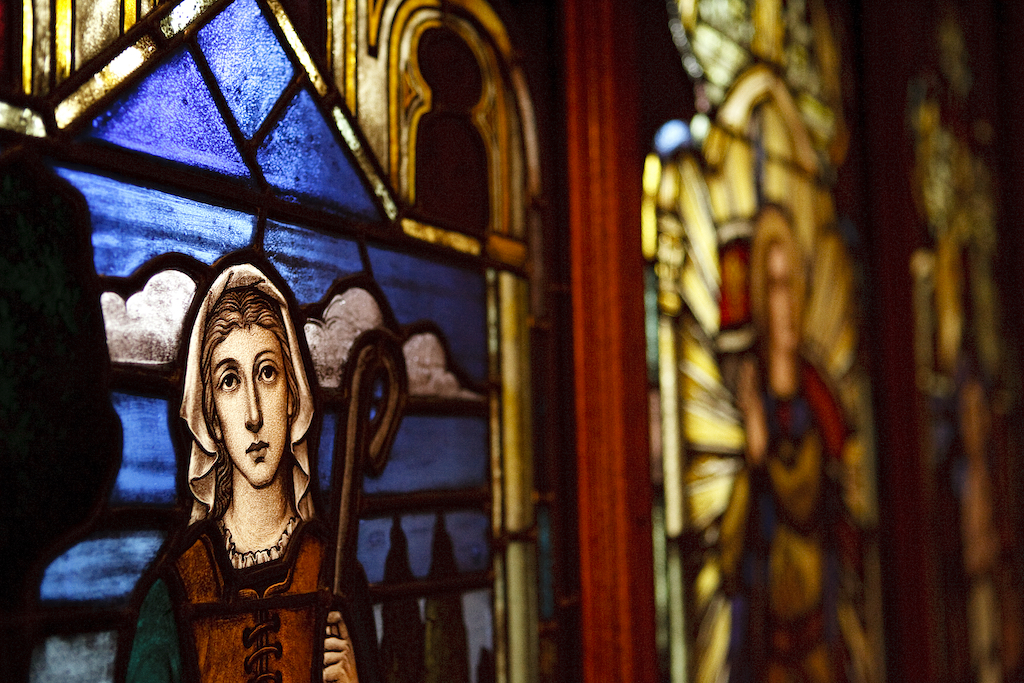ONLINE MAGAZINE EXCLUSIVE
Few characters in literature stand out as grotesque, pitiful, and sad as J.R.R. Tolkien’s creature Gollum. The complexity of Gollum’s character is presented in two personae: Sméagol – the once Hobbit-like creature who years ago lived above ground in a community with friends and family; and Gollum, the morally grotesque creature he had become after centuries of possessing (and being possessed by) the Ring of Power. Throughout The Two Towers and The Return of the King, Sméagol comes to represent the possibility of his better nature (at least as Gandalf and Frodo imagine) while Gollum is the morally depraved persona who so desperately needs healing.
It is in this moral paradox – that in wanting to possess power one becomes possessed by power – that we see clearly what power does to people and the struggles an individual may encounter. Tolkien’s description of Gollum conforms to a Catholic – and Thomistic – account of envy, which is a “sadness of the soul”; and it is Gollum’s unbearable sadness and his unquenchable desire for the one Ring that marks his character. This particular vice severs him from community, inflames his hatred of others, and divides him against himself.
Nowhere is this more clearly seen than in the dialogue between Gollum and Sméagol in The Two Towers as the trio make their way through the Dead Marshes. While Frodo sleeps (and Sam pretends to sleep), the two personalities argue with one another about whether or not to kill the Hobbits and take the Ring. Sméagol feels bound by the promise he has made to be obedient (since he has sworn by the Ring itself). He says to Gollum, “But Sméagol said that he would be very very good. Nice Hobbit! … He speaks nicely to me.” But Gollum rejects Sméagol’s argument by appealing to deep-seated envy and hatred to undermine Sméagol’s sense of obligation with a quick re-narration of the wicked deeds of the Bagginses. Gollum then suggests, “Perhaps we grows very strong, stronger than Wraiths. Lord Sméagol? Gollum the Great. The Gollum! Eat fish every day, three times a day, fresh from the Sea. Most Precious Gollum! Must have it. We wants it, we wants it, we wants it!” It is then Sam’s feigned awakening from sleep that stays Gollum’s hand.
It is this obsessive desire for the Ring that ultimately results in Gollum’s undoing. As the story builds to its conclusion at Mount Doom, Gollum struggles with Frodo on the precipice, bites Frodo’s finger, and takes possession of “the Precious.” Finally, with the Ring in his grasp, he proclaims, “‘Precious! O my Precious!’ And with that, even as his eyes were lifted up to gloat on his prize, he stepped too far, toppled, wavered for a moment on the brink, and then with a shriek he fell.” His all-consuming desire, finally achieved, ends in his own destruction.
The envy that disintegrates Sméagol-Gollum’s character can readily be understood as one of the seven capital vices. Aquinas held that envy was a “sadness over another’s good” (ST II-II q.36, a.1). Sadness is a natural human reaction to loss, but when this sense of loss becomes vindictive and malicious (and directed at another), it gives birth to hate. Aquinas goes so far as to say that hatred is the daughter of envy (ST II–II, q.34, a.6). There is an important perceptual element to envy and this is captured in the Latin invidia, which derives from invidere: “to look at with malice.”
In The Lord of the Rings, at critical points in the narrative, Tolkien specifically describes Gollum in terms of malice. At the pool of Henneth Annûn, when Faramir’s men capture Gollum, Tolkien writes, “Gollum blinked, hooding the malice of his eyes with their heavy pale lids,” and Faramir warns Frodo, “Malice eats [Gollum] like a canker.”
Perhaps the most important example is on the slopes of Mount Doom, where Gollum attacks Frodo. Tolkien writes: “Whatever dreadful paths, lonely and hungry and waterless, he had trodden, driven by a devouring desire and a terrible fear, they had left grievous marks on him. He was a lean, starved, haggard thing, all bones and tight-drawn sallow skin. A wild light flamed in his eyes, but his malice was no longer matched by his old griping strength.” This phenomenological description of Gollum’s desire for the Ring, the envy and malice seen in his eyes, and the hatred that consumes him shows a kind of narrative account of what envy does to a soul.
Gandalf sums up Gollum’s unbearable sadness by noting, “He hated the dark, and he hated light more: he hated everything, and the Ring most of all. … He hated it and he loved it, as he hated and loved himself.”
Gollum’s desire for the Ring is misdirected and as such it cannot ever satisfy his natural teleology. The relentless pursuit of the Ring is the insatiable desire for “the good” another possesses. But envy cannot fulfill the promises it makes to the envious, because even when the envious possess the object of their desire, they are never satisfied since they have chosen a lesser good over the greater goods of friendship and community.
Excerpted from Logos: A Journal of Catholic Thought and Culture 26, No. 1 (Winter 2023). The whole article or issue can be found here: pdcnet.org/logos.





